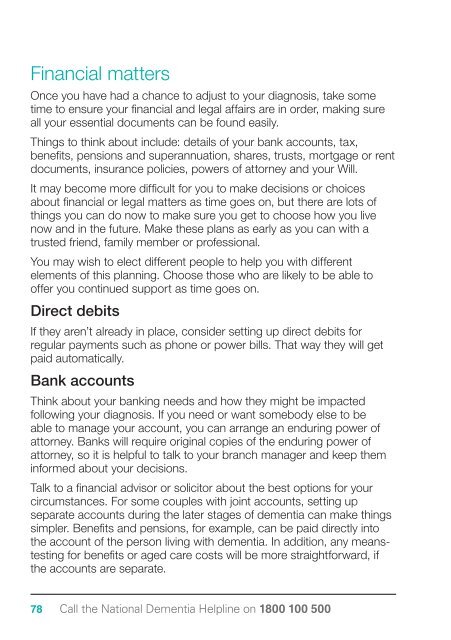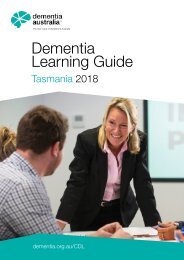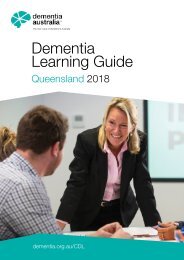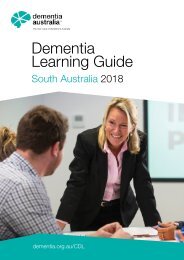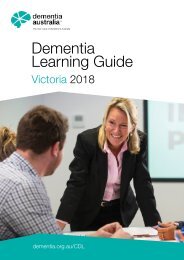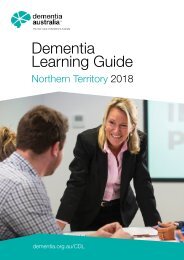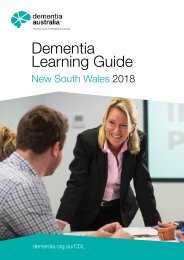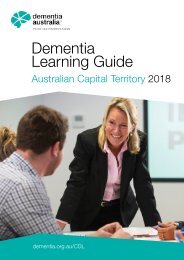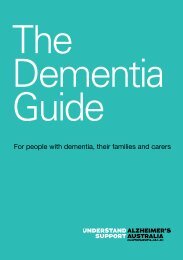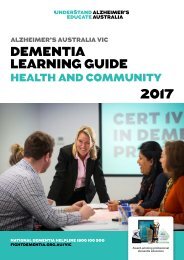Dementia Australia | The Dementia Guide
The Guide will also be used by the family and friends of someone with dementia, as it will contain information for anyone taking on a caring role. It will help people to understand more about dementia and the emotional impact of a diagnosis, the available drug treatments, and support and services that are available. It will include information about living well with dementia and about making plans for the future.
The Guide will also be used by the family and friends of someone with dementia, as it will contain information for anyone taking on a caring role. It will help people to understand more about dementia and the emotional impact of a diagnosis, the available drug treatments, and support and services that are available. It will include information about living well with dementia and about making plans for the future.
You also want an ePaper? Increase the reach of your titles
YUMPU automatically turns print PDFs into web optimized ePapers that Google loves.
Financial matters<br />
Once you have had a chance to adjust to your diagnosis, take some<br />
time to ensure your financial and legal affairs are in order, making sure<br />
all your essential documents can be found easily.<br />
Things to think about include: details of your bank accounts, tax,<br />
benefits, pensions and superannuation, shares, trusts, mortgage or rent<br />
documents, insurance policies, powers of attorney and your Will.<br />
It may become more difficult for you to make decisions or choices<br />
about financial or legal matters as time goes on, but there are lots of<br />
things you can do now to make sure you get to choose how you live<br />
now and in the future. Make these plans as early as you can with a<br />
trusted friend, family member or professional.<br />
You may wish to elect different people to help you with different<br />
elements of this planning. Choose those who are likely to be able to<br />
offer you continued support as time goes on.<br />
Direct debits<br />
If they aren’t already in place, consider setting up direct debits for<br />
regular payments such as phone or power bills. That way they will get<br />
paid automatically.<br />
Bank accounts<br />
Think about your banking needs and how they might be impacted<br />
following your diagnosis. If you need or want somebody else to be<br />
able to manage your account, you can arrange an enduring power of<br />
attorney. Banks will require original copies of the enduring power of<br />
attorney, so it is helpful to talk to your branch manager and keep them<br />
informed about your decisions.<br />
Talk to a financial advisor or solicitor about the best options for your<br />
circumstances. For some couples with joint accounts, setting up<br />
separate accounts during the later stages of dementia can make things<br />
simpler. Benefits and pensions, for example, can be paid directly into<br />
the account of the person living with dementia. In addition, any meanstesting<br />
for benefits or aged care costs will be more straightforward, if<br />
the accounts are separate.<br />
78 Call the National <strong>Dementia</strong> Helpline on 1800 100 500


